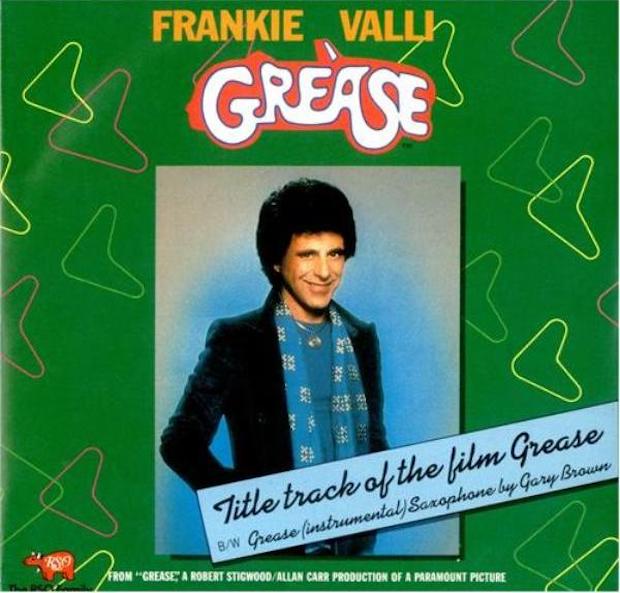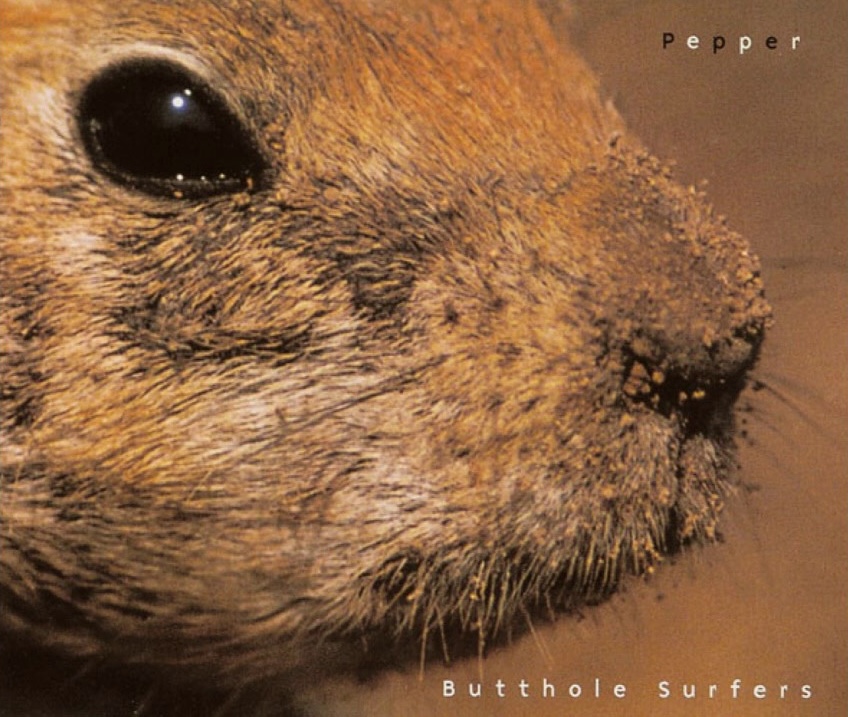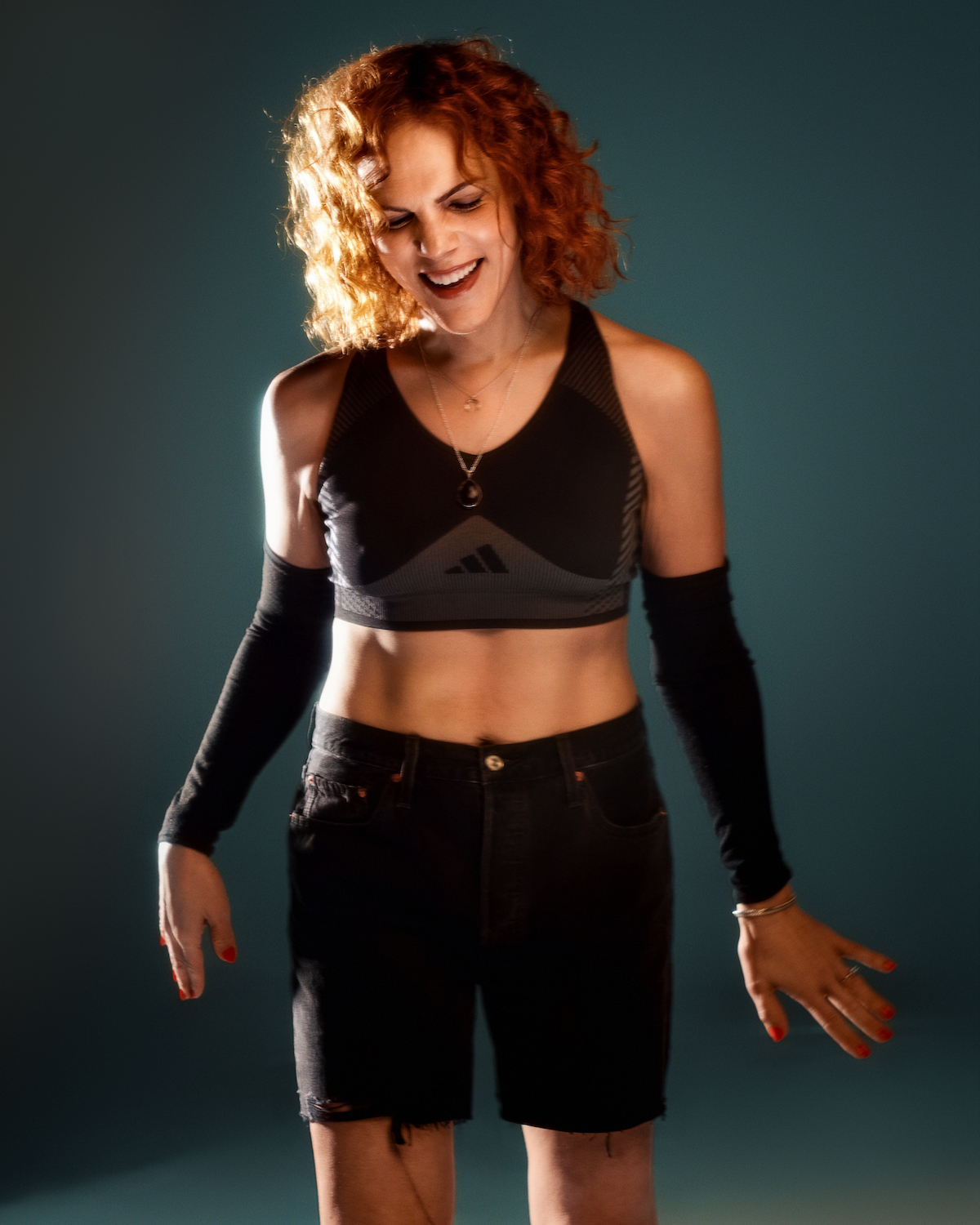In The Number Ones, I'm reviewing every single #1 single in the history of the Billboard Hot 100, starting with the chart's beginning, in 1958, and working my way up into the present.
Frankie Valli - "Grease"
HIT #1: August 26, 1978
STAYED AT #1: 2 weeks
Frankie Valli and Barry Gibb are probably the two greatest white-soul falsetto howlers in rock history. In the pre-British Invasion days of the early '60s, Valli and his Four Seasons built on the doo-wop blueprint and added in cats-fucking squeaks, becoming one of that era's defining acts in the process. More than a decade later, Barry Gibb discovered his own upper register and applied it to disco, making kicked-in-the-dick screeches into blockbuster entertainment.
So you'd think that a team-up from Frankie Valli and Barry Gibb would be an all-time scream-off, a psychedelic kaleidoscope of inexplicably confident helium squeals. Instead, Frankie Valli sings the song in what passes for a normal voice. It's just weird. Imagine if Al Pacino and Robert De Niro got together in 1995 -- not to make an all-time-great cops-and-robbers film but to start a juggling act. But that's "Grease."
"Grease" is a strange little phenomenon all around, for reasons that go beyond Valli's decision to sing it in a voice that sounds nothing like an air-raid siren. It's the opening theme from 1978's biggest movie, a Broadway adaptation built on nostalgia for the early rock 'n' roll era. And yet Valli, who first became a huge success in the era immediately after the one depicted in Grease, doesn't do anything to call back to that era. Instead, Barry Gibb has written him a slick and strange aquarian disco number about, like, generational confusion. "Grease," the song, appears in Grease, the movie, but it basically has nothing to do with Grease.
Maybe Grease producer and Bee Gees label boss Robert Stigwood was just applying a lesson he'd learned from producing Saturday Night Fever: If you're going to give the public a movie where John Travolta does a whole lot of dancing, it helps to sell it with Bee Gees songs. Those two movies are nothing alike; Saturday Night Fever is a deeply depressing contemporary social-realist drama, while Grease is a proudly silly period-piece musical. But apparently the same strategy worked both times, since both movies and soundtrack albums were blockbusters.
In Grease, Valli's song plays during the opening credits, soundtracking a series of cartoon images of '50s life: Elvis, hula hoops, hair glop. The animation is crude and ugly, made to look like late-'60s underground comics or Schoolhouse Rock. It pulses to the beat of the song, which sounds nothing like any of the songs that appear later in the movie. Maybe the idea was to slowly sweep the audience back into that time period -- to give them something contemporary while they adjusted their aesthetic sensibilities. I don't know. I'm reaching. It's some bizarre shit.
Barry Gibb wrote "Grease" while he and the other Bee Gees were filming Sgt. Pepper's Lonely Hearts Club Band, Stigwood's disastrous-flop movie-musical version of the Beatles album. Barry was awfully busy in those days, and I can't imagine he put too much thought into "Grease," given how little it has to do with the actual film that it soundtracks. My best guess is that Stigwood asked Gibb to write a song called "Grease" without telling him a single thing about movie. So we get profoundly meaningless stuff like this: "Grease is the word, is the word that you heard/ It's got a groove, it's got a meaning/ Grease is the time, is the place, is the motion/ Grease is the way we are feeling." It is?
Maybe Gibb was thinking about some slippery sense of reality. If "Grease" says anything, it's a loose musing about a lost and adrift generation: "This is a life of illusion, a life of control/ Mixed with confusion -- what're we doing here?" I don't know! Frankie Valli doesn't sound like he knows, either. He sounds like he's singing words in a foreign language. There's no expression in his voice. He's just pronouncing words.
Valli was coming off of a remarkable late-career run when he recorded "Grease." He'd emerged from psychedelic-era obscurity, hitting #1 with the solo 1975 soft-rock ballad "My Eyes Adored You" and with the 1976 nostalgia-dazed Four Seasons doo-wop disco number "December, 1963 (Oh, What A Night)." But even after that, he was without a label, so he jumped at the chance to work with an on-top-of-the-world Barry Gibb. Later on, Valli said that he was offered the choice of singing the Grease theme song or appearing in the movie, singing the song "Beauty School Dropout." Valli picked the former, and his fellow early-'60s chart-topper Frankie Avalon took the "Beauty School Dropout" role.
Barry Gibb co-produced "Grease" with his usual Bee Gees collaborators, Albhy Galuten and Karl Richardson. Gibb also sings backup on the song; his is the only falsetto we hear. And Gibb isn't the only late-'70s superstar on the track; he also invited his Sgt. Pepper's castmate Peter Frampton in to play guitar. (Frampton's highest-charting single, 1977's "I'm In You," peaked at #2. It's a 4.) But you can't really hear anything specifically Frampton-ish in "Grease," and you can barely hear anything specifically Valli, either.
Instead, "Grease" is, more or less, a Bee Gees song that wasn't good enough for the Saturday Night Fever soundtrack. There are good things about it; I like the sidelong almost-funky beat, and the opening horn-burst is pretty exciting. Valli was losing his hearing when he recorded the song; it would be restored in an operation a couple of years later. Maybe that's why he never really busts out the high notes. Instead, he sings the whole thing in a sort of pinched tenor, a not-as-good version of what Gibb himself might've done with it.
Grease was the highest-grossing film of 1978, and the Bee Gees were the dominant group of the day. Without both of those things, I can't imagine a replacement-level Barry Gibb song like "Grease" hitting #1. But it exists at the intersection of a few different cultural phenomena, so maybe the record buyers of 1978 were helpless before it. Valli has said that there's no way Barry Gibb would've given him the song if he'd known how big it was going to be.
Frankie Valli never landed another top-10 hit after "Grease," but it's pretty amazing that he managed to chart that late, getting to #1 16 years after he'd first arrived there with the Four Seasons' "Sherry." In the years ahead, Valli would dabble in acting, playing mob bosses on Miami Vice and The Sopranos. And he'd become the subject of his own Broadway musical. Jersey Boys, the show about the Four Seasons, opened on Broadway in 2005, and it ran for 14 years. Clint Eastwood made it into a movie in 2014. So Frankie Valli's doing just fine. Barry Gibb, meanwhile, will be back in this column again.
GRADE: 4/10
BONUS BEATS: Prince Paul sampled the "Grease" horn break on De La Soul's 1991 single "A Roller Skating Jam Named 'Saturdays.'" Here's that song's video:
https://youtube.com/watch?v=_Tu-qDHSSZo&feature=emb_title
(De La Soul have never had a top-10 hit. Their highest-charting single, 1989's "Me Myself And I," peaked at #34. They also rapped on Gorillaz' "Feel Good Inc.," which peaked at #14 in 2005.)
BONUS BONUS BEATS: Here's Mike Patton singing a bit of "Grease" on Mr. Bungle's 1991 song "Quote Unquote (Travolta)":
(Mr. Bungle have never had a top-10 hit, either. But Patton's other band Faith No More peaked at #9 with 1989's "Epic." That one is a 10.)
BONUS BONUS BONUS BEATS: J Dilla apparently liked "Grease" so much that he sampled it again and again -- usually the echoing "it's the word, it's the word" bit from the chorus -- over the years. Listen:
https://youtube.com/watch?v=WGc0zFumcBA&feature=emb_title
BONUS BONUS BONUS BONUS BEATS: Here's Jessie J singing "Grease" at the beginning of the 2016 Fox live-musical special Grease Live:
(Jessie J's highest-charting US single, the 2014 Ariana Grande/Nicki Minaj collab "Bang Bang," peaked at #3. It's a 7.)






